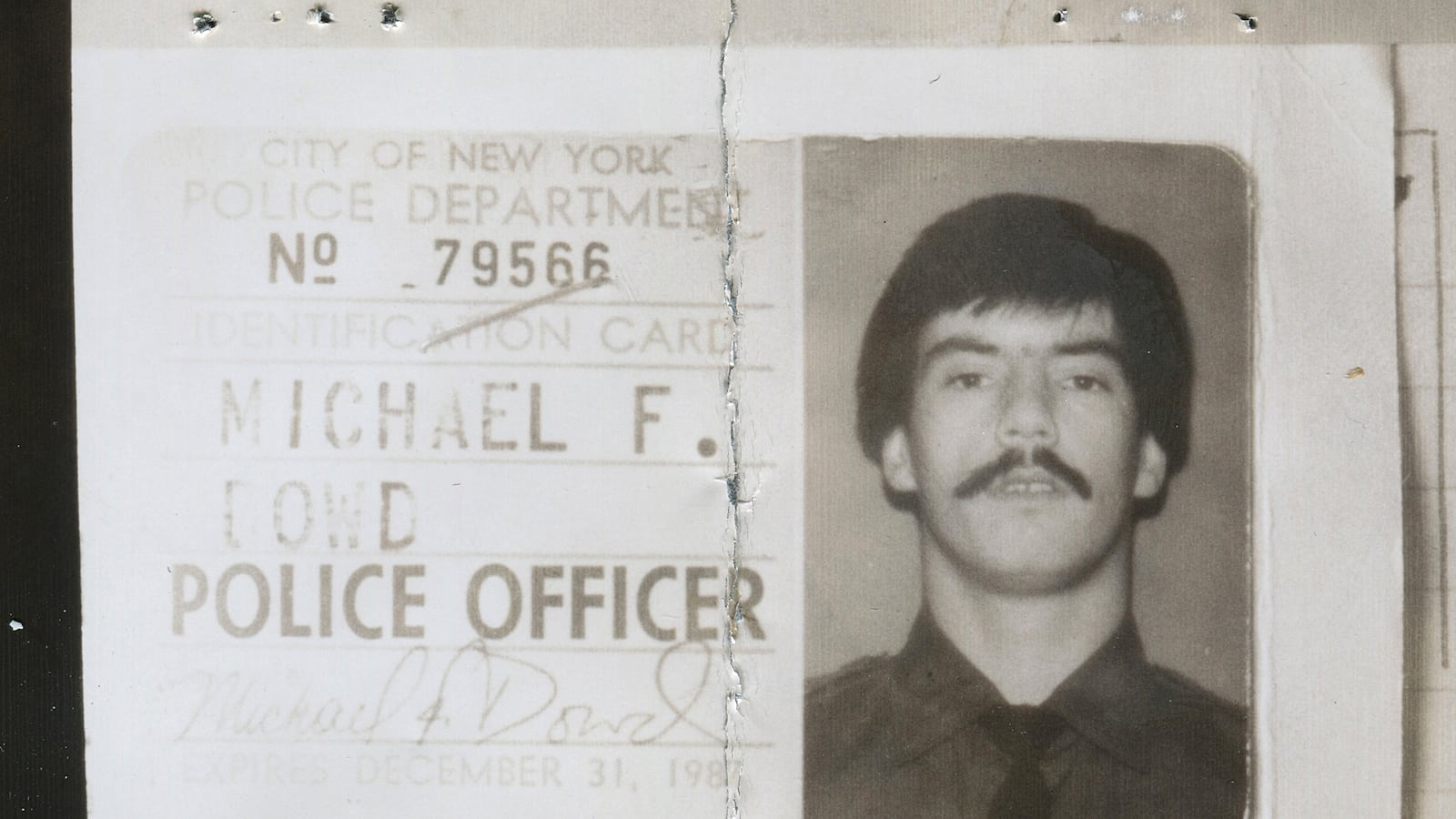“I considered myself both a cop and a gangster.”
Disgraced NYPD officer Michael Dowd tells his gangster tale in the crime documentary The Seven Five, director Tiller Russell’s riveting chronicle of how Dowd’s ring of extorting, drug-pushing, money-laundering police ran wild and were eventually caught in one of the most shocking NYPD corruption scandals to rock 1980s New York City.
Unlike Bill Bratton’s war on police brutality, corruption in Dowd’s 1980s New York City was motivated by moral lines between cops and criminals blurrier than in a Scorsese flick. The self-aggrandizing Dowd revels in the spotlight as he barrels down memory lane along with his fellow dirty cops, investigators who were on their tail, and the colorful drug dealers who took one glance at Dowd and saw in him a kindred criminal spirit with a badge.
It all started after 11 officers in the nearby 77th precinct were arrested in a headline-grabbing 1986 extortion scandal that ripped that division apart. Dowd gambled on the department’s reluctance to expose even more corruption within its ranks so soon, and began shaking down the criminals on his beat.
At first, Dowd would skim cash from crime scenes and off of perps both guilty and innocent—easy pickings that supplemented the $600-per-week paychecks cops were getting back then to throw themselves into the deadly crack wars that plagued the poorest hoods in NYC.
He recalled his first shakedown of a black motorist he’d pulled over that left him buzzing with a rush once he realized he’d gotten away with it. Skimming turned to robbery and extortion as he targeted drug dealers in his jurisdiction and offered protection services to local gangsters, recruiting several of his fellow officers in Brooklyn’s 75th Precinct. The adrenaline rush was “something you’ve never felt,” one of Dowd’s former cohorts ruefully explains.
Between 1986 and 1992, the Long Island-based Dowd and his boys ran rampant under the nose of a department that seemingly looked the other way—even as he showed up to work in a brand new red Corvette and lived suspiciously large on a beat cop’s modest salary. “You felt like you were a god,” Dowd admits with a gleam in his eye, more nostalgic than remorseful for the hundreds of crimes he committed while in uniform, including supplying a Colombian drug syndicate with guns, bulletproof vests, and police radios.
Archival footage of Dowd’s solemn 1993 testimony in front of a city commission are juxtaposed with interviews with Dowd, along with fellow 75th officers and investigators who smelled something fishy. One of his gangster bosses, Adam Diaz, a flashy drug impresario with Pitbull-like flair and a penchant for Julio Iglesias and Bryan Adams, would pay off Dowd & Co. with envelopes stuffed with cash out of his bodega storefronts and a local stereo store. With characters like these it’s no wonder Sony already snagged remake rights to adapt The Seven Five into a Goodfellas-esque true crime feature.
A “good” cop, Dowd tells the city commission, is one who doesn’t rat out his fellow cops. By that logic Dowd probably considers himself the best cop New York’s ever seen. He’s still hurting from one huge betrayal: Dowd served a dozen years on racketeering and cocaine trafficking charges after his partner, Kenny Eurell, turned informant and sent him to prison.
That violation between brothers of the badge seems to plague Dowd more than the gross ethical misconduct he and his fellow officers perpetrated on the public that needed their protection. “It felt as though I was cheated on by my wife,” Dowd says.
The Seven Five finds a villain you love to hate in Dowd, but it also frames the fellow cops who were arrested along with him as relative innocents in his schemes. As a beat cop, Eurell initially resisted being partnered with Dowd because of his shady reputation but eventually succumbed to the dark side, becoming his No. 2 until Dowd hatched a plot to kidnap and murder the wife of a drug dealer.
Wearing a wire, Eurell helped the Suffolk County Police Department nail Dowd. He received only three months time served for his trouble. “I regret I ever met Mike,” he laments in the film.
Dowd isn’t as convincing in his remorse, recounting his exploits like a star quarterback reliving his glory days. Only in one brief moment does he come close to expressing honest regret for his crimes. “I always wanted to be a good cop,” he tearfully insists. “I didn’t come on the police department to be a bad cop.”





